Why using Physical Surveillance as a tool for private investigator is More Viable Than Ever in a Tech-Driven World
In today’s world, dominated by advanced technology and digital tools, it may seem that traditional methods of private investigation, like physical surveillance are becoming obsolete. After all, the internet provides vast amounts of information, and high-tech tools like GPS tracking, social media analysis, and digital forensics can often seem like the go-to for modern investigators. However, in many cases, physical surveillance remains a crucial. It is highly effective, and a viable method for gathering evidence and intelligence, especially when no digital alternative can provide the same level of certainty or clarity.
Let’s explore why physical surveillance continues to be such a powerful tool. This is particularly the case in the private sector and why it remains indispensable in certain investigative situations.
The Unmatched Value of Physical Surveillance
Despite the rise of digital technology, there are many scenarios where physical surveillance remains a more reliable It is also cost-effective, and a direct method of obtaining crucial evidence. In fact, physical surveillance often provides the most tangible, undeniable proof, especially when other methods, like digital monitoring, can be circumvented or don’t offer conclusive results.
Covert Observation: Keeping the Subject Unaware
One of the most critical aspects of physical surveillance is its covert nature. Whether you’re tracking someone’s movements, documenting a crime, or monitoring suspicious behaviour, the goal is to do so without the subject ever realizing they’re under observation. In contrast to digital surveillance, which can sometimes be detected through cybersecurity measures or suspicious patterns, physical surveillance requires investigators to remain invisible—moving seamlessly within the environment to avoid detection.
For example, when tracking a subject’s movements on foot or in a vehicle, an investigator must be adept at blending in with their surroundings. This is often accomplished by employing strategies such as following a subject at a distance, using unremarkable vehicles, or positioning oneself in a way that avoids being noticed. The need for discretion and seamless operation is why surveillance operatives need specialized training and experience.
Consistent, Uninterrupted Monitoring
Another challenge investigators face in a tech-heavy world is ensuring continuous observation. Unlike digital tools that may malfunction, be limited in scope, or be blocked by firewalls and privacy settings, physical surveillance provides uninterrupted monitoring. A private investigator must always be vigilant—whether observing from a vehicle, a hidden location, or in plain sight—and never lose track of their subject.
This level of persistence is important when gathering evidence or intelligence, as it allows the investigator to document every action, no matter how small or insignificant it might seem at the time. The ability to keep a subject under constant surveillance over extended periods ensures a complete picture of their behaviour, habits, and interactions.
Obtaining Real-Time Evidence: Photos, Videos, and Written Testimony
One of the major advantages of physical surveillance is the ability to capture direct, real-time evidence—often in the form of photos, video recordings, or written reports. Unlike digital data, which may be falsified or manipulated, physical evidence obtained through surveillance is immediate and tangible.
For example, in cases involving suspected insurance fraud or a cheating spouse, physical surveillance can capture irrefutable evidence of a subject’s actions—whether it’s a video of someone engaging in fraudulent activities or photographs documenting an affair. This type of evidence holds significant weight in courtrooms, corporate investigations, or when presenting a case to interested parties such as lawyers or clients.
Accurate Reporting for Clients and Legal Matters
Once surveillance is complete, providing an accurate, well-documented report is vital. The evidence collected needs to be presented in a manner that can be used for legal or professional purposes. A private investigator must produce clear, concise reports that detail the surveillance process, the subject’s movements, and any relevant findings.
For example, in cases involving child custody disputes, a private investigator’s report may be presented to a family court to help determine the best interests of a child based on documented behaviour. Similarly, in corporate investigations, reports might be used to support legal action against employees breaching company policies.
Applications of Physical Surveillance in Private Investigation
While surveillance is widely used by law enforcement agencies like the police, customs, and military for criminal investigations, its use in the private sector—by licensed private investigators—can be equally important. Surveillance is often the only effective tool for uncovering hidden truths when other methods, such as digital tracking or forensics, fall short.
Here are just a few areas where private investigators can use physical surveillance to obtain crucial evidence or intelligence:
- Insurance Fraud
Insurance fraud is one of the most common types of cases where physical surveillance proves invaluable. Whether it’s workers’ compensation fraud, false injury claims, or fraudulent claims involving property damage, private investigators can use surveillance to document the truth. By monitoring the subject’s daily activities and comparing them with their claims, investigators can gather compelling evidence to support or dispute the allegations.
- Restraint of Trade Breaches
In the corporate world, physical surveillance can be used to monitor employees suspected of breaching non-compete clauses or restraint of trade agreements. Surveillance can track whether an employee is engaging with a competitor, revealing confidential business secrets, or engaging in activities that directly violate their contractual obligations.
- Employee Monitoring and Remote Work
With the rise of remote work, businesses now face new challenges when it comes to monitoring employee behaviour. Physical surveillance can be used to confirm whether employees are adhering to company rules, meeting productivity expectations, or engaging in misconduct when they work remotely or with limited supervision. This is especially true in situations where there are suspicions of theft, fraud, or misconduct in the workplace.
- Infidelity and Relationship Investigations
When individuals suspect that their partner is being unfaithful, physical surveillance is often the most direct method for gathering evidence. Whether it involves tracking a spouse’s movements or documenting meetings with a suspected third party, surveillance can provide clear, undeniable proof of infidelity, which can be crucial in divorce or custody proceedings.
- Child Custody Disputes
In child custody cases, physical surveillance can be used to observe the behaviour of one or both parents, ensuring they are meeting the requirements of their custodial agreements. If one parent is suspected of neglect, substance abuse, or unfit behaviour, a private investigator can document the findings to present to a family court.
Who Can Conduct Surveillance?
In New Zealand, private security personnel and licensed private investigators are authorized to conduct surveillance, as long as they adhere to the Code of Conduct—
Surveillance of Individuals regulations. This ensures that surveillance is carried out professionally, ethically, and legally. You can read more about the regulations here.
While law enforcement and military services also conduct surveillance operations, the need for specialized surveillance often falls to licensed private investigators in the private sector. These professionals have the training, experience, and resources to execute surveillance operations effectively while adhering to legal and ethical boundaries.
Conclusion: The Enduring Power of Physical Surveillance
In a world saturated with technology, it’s easy to overlook the power of traditional investigative methods like physical surveillance. However, in many cases, it remains the most effective tool for obtaining real-world, undeniable evidence that can support or challenge claims, protect clients, and bring resolution to complex investigations.
Whether it’s for a personal matter like infidelity or a corporate investigation involving employee misconduct, physical surveillance offers unmatched reliability, discretion, and tangible results that digital methods simply can’t replicate. As long as there’s a need for discreet, real-time intelligence gathering, physical surveillance will continue to be an essential and valuable tool for private investigators and clients alike.

